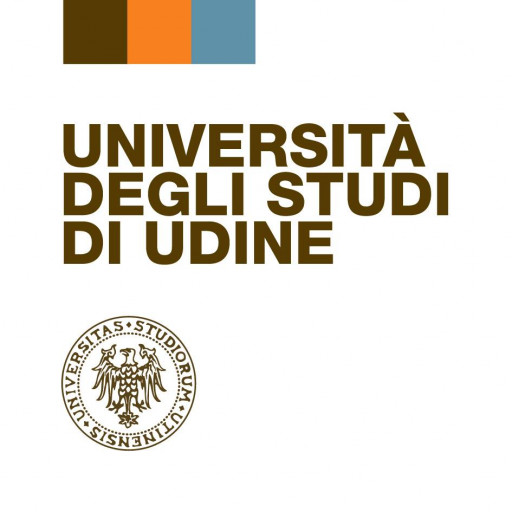Photos of university / #ucl
Advanced Audiology at University College London is a comprehensive postgraduate program designed for healthcare professionals seeking to deepen their expertise in audiological science and clinical practice. This program provides students with an in-depth understanding of hearing and balance disorders, focusing on the latest diagnostic techniques, intervention strategies, and technological advancements in audiology. Throughout the course, participants engage with a wide range of modules covering areas such as audiological assessments, cochlear implants, tinnitus management, vestibular assessment, and auditory rehabilitation. The curriculum combines theoretical knowledge with practical skills, enabling students to apply evidence-based approaches in clinical settings. Delivered by leading researchers and clinicians at UCL, the program fosters an environment of innovation and critical inquiry, encouraging students to contribute to research and development in audiology. It is tailored for audiologists, ENT specialists, and other healthcare professionals aiming to expand their competencies and improve patient care. The advanced nature of the program also prepares graduates for roles in research, specialized clinical practice, and leadership within audiology services. Students benefit from state-of-the-art laboratories, clinical placements, and collaborative projects with industry partners, ensuring a well-rounded educational experience. Upon successful completion, graduates receive a recognized qualification that enhances their career prospects and expertise in the dynamic field of audiology. The program emphasizes a multidisciplinary approach, integrating insights from audiology, neurology, psychology, and engineering to address complex hearing and balance issues. It is ideal for professionals committed to advancing their skills and making a significant impact in the lives of individuals with auditory and vestibular disorders.
A wide range of optional modules enables students to focus on specific advanced fields of audiology relevant to their professional practice. Students will learn about the latest research in each field and how to apply this to patient care and service delivery. Students will gain proficiency in using new tools and techniques in line with advanced-level practice.
MSc students undertake modules to the value of 180 credits.
The programme consists of three compulsory modules (45 credits), the research project and dissertation (60 credits), and five optional modules (75 credits).
A Postgraduate Diploma, three core modules (45 credits), five optional modules (75 credits), full-time nine months is offered.
A Postgraduate Certificate, four optional modules (60 credits), part-time up to two years is offered.
Core modules
- Anatomy and Physiology of the Audiovestibular System
- Research Methods and Statistics
- Counselling
- Research Project (see below)
Choose five options from the following:
Students choose five of the following optional modules.
- Advanced Management of Tinnitus and Hyperacusis
- Advanced Amplification and Aural Rehabilitation
- Vestibular Rehabilitation
- Advances in Auditory Implants
- Paediatric Assessment
- Paediatric Habilitation
- Rehabilitation for Adults with Acquired Hearing Loss
- Signals and Systems
- Research Evidence and Design I
- Principles of Health Informatics
- eHealth: Patients and the Internet
- Healthcare Quality and Evidence Based Practice
- Using Information in Healthcare Management
- Research Methods in Healthcare
- Introduction to Neuroanatomy, Systems and Disease
Dissertation/report
All MSc students undertake an independent research project which culminates in a dissertation of approximately 10,000–12,000 words.
Teaching and learning
The programme is delivered through lectures, practical demonstrations and workshops, structured workplace/placement observation, online tutorials and assignments. Research skills will be obtained through lectures and the completion of a scientific research paper and poster presentation. Assessments include essays, reflective journals, case studies, clinical portfolios, unseen examinations and the research dissertation.
Applicants need to have at least two years' recent post-qualification clinical experience in audiology or a related discipline. A minimum of a second-class Bachelor's degree in a relevant discipline from a UK university or an overseas qualification of an equivalent standard is the standard entry requirement.
The Ear Institute recognises that some audiology professionals may have had different (non-degree) entries into the profession. Applicants with the BAAT qualification and/or a Certificate or Diploma in Hearing Therapy who also have at least five years of relevant clinical experience and appropriate registration with the RCCP may be accepted, depending on their relevant experience, and are encouraged to contact the Ear Institute to discuss their application.
The Advanced Audiology program at University College London offers a range of financing options to support students throughout their studies. Tuition fees vary depending on the student’s residency status, with UK/EU students typically paying a different rate compared to international students. For the latest fee information, prospective students should consult the university’s official fee schedule. In addition to tuition, students should consider costs for textbooks, equipment, and living expenses. UCL provides various scholarships, bursaries, and financial aid opportunities specifically for postgraduate students in health sciences and audiology. These include merit-based scholarships awarded based on academic performance, as well as need-based bursaries aimed at supporting students from diverse backgrounds. The university also offers Doctoral Assistance and Research Funding for eligible students intending to pursue research components within the program. Many students finance their studies through personal savings, sponsorship from their employer, or external funding bodies. International students are encouraged to explore visa sponsorship options that sometimes include funding grants for international students. UCL’s financial aid office provides guidance on application procedures for these funding sources and offers advice on budgeting for the duration of the program. Additionally, some students may be eligible for government loans or student loan programs depending on their country of residence. It is important for applicants to start financial planning early and to apply for funding well in advance of the program start date. The university’s comprehensive financial support services are designed to help students manage their finances effectively, ensuring they can focus on their academic and professional development during the course.
The Advanced Audiology program at University College London (UCL) is a comprehensive postgraduate course designed for audiologists and healthcare professionals seeking to specialize further in audiology. This program aims to develop advanced knowledge and practical skills in diagnosing and managing complex hearing and balance disorders. The curriculum incorporates a broad spectrum of topics, including auditory system physiology, advanced diagnostic techniques, rehabilitation strategies, and current research developments in audiology. Students are also trained in using cutting-edge equipment and technology used in contemporary audiological practice. The program emphasizes experiential learning through placements, clinical practice, and research projects to ensure graduates are well-prepared for professional roles in hospitals, clinics, and research institutions. UCL's strong links with healthcare providers and industry leaders facilitate networking and career advancement opportunities. Graduates of this program are equipped to contribute significantly to clinical audiology, research, and policy-making in hearing health. The program duration is typically one year for full-time study, with options for part-time postgraduate study. Entry requirements usually include a relevant undergraduate degree, experience in audiology, and proficiency in English. Overall, the Advanced Audiology program at UCL is designed to produce highly skilled audiologists capable of addressing complex auditory and vestibular health issues within multidisciplinary teams.







